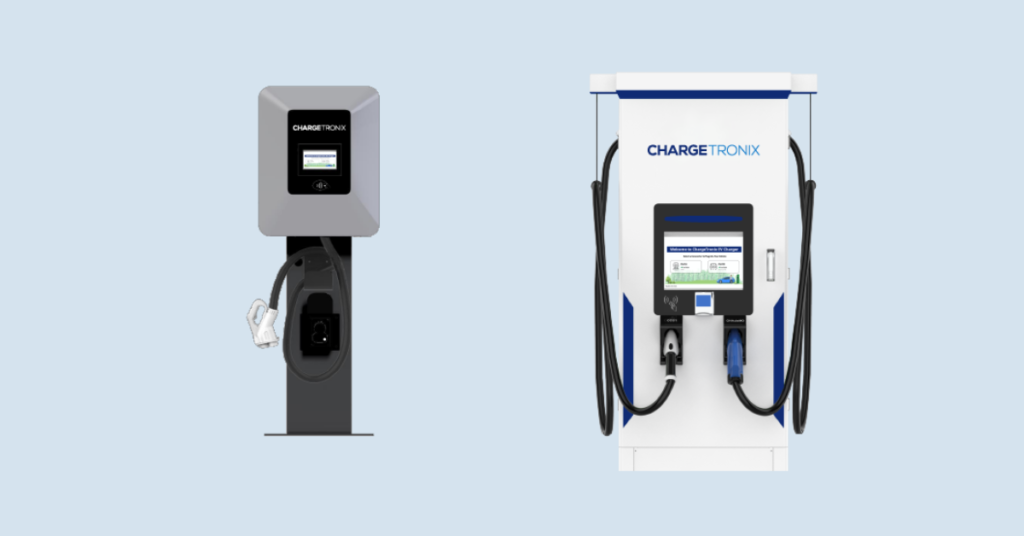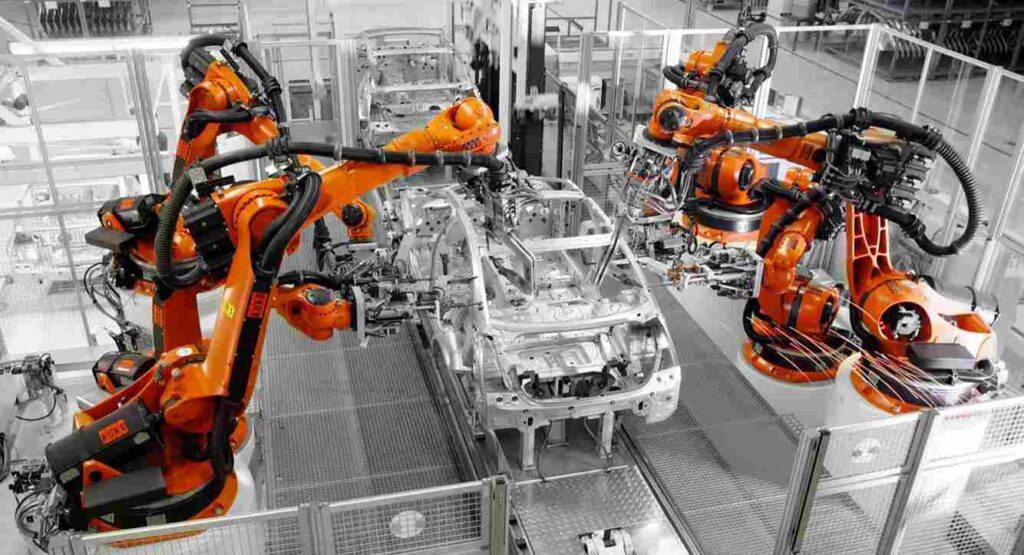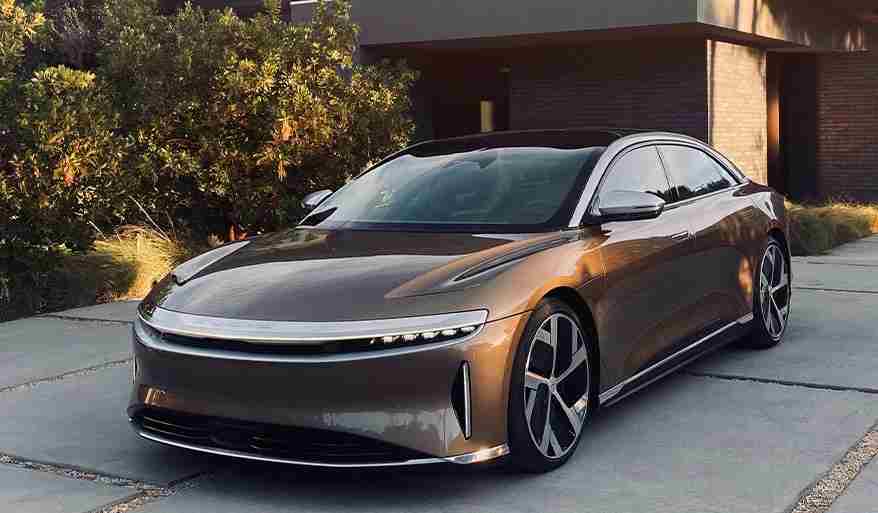- The Evolution of EV Charging
- Understanding Modular Design in EV Charging
- The Impact on Infrastructure Development
- Benefits for Businesses and Consumers
- ChargeTronix: A Case Study in Modular Charging Innovation
- Navigating the Regulatory Landscape with Modular Design
- The Technological Drivers of Modular Design
- Modular Design's Role in a Sustainable Future
The Evolution of EV Charging
A Shift in Power Provision: As the global shift toward electric vehicles gains momentum, the supporting infrastructure must evolve in tandem. The development of EV charging solutions has progressed from rudimentary plug-ins to advanced, networked stations, with modular design at the forefront of this evolution.
The Early Days of EV Charging: The initial stages of EV charging infrastructure were marked by fixed-capacity, stand-alone chargers that offered little in the way of flexibility. As the number of EVs on the road began to grow, it quickly became evident that this inflexible infrastructure would not suffice.
Recognizing the Need for Scalability: With the variability in EV charging demands, both in terms of power requirements and physical space, the industry has recognized the necessity for a more adaptable approach. Modular design in EV charging infrastructure is the response to this need, allowing for scalability that matches the pace of EV adoption.
The Rise of Modular Charging Solutions: Modular EV charging solutions represent the next step in the charger evolution. They are designed to scale up power output and expand charging capabilities without the need for complete overhauls of existing infrastructure, representing a significant advancement in how we think about powering EVs.
Understanding Modular Design in EV Charging
Defining Modular Design: Modular design refers to creating a system that can be easily expanded or modified by adding or replacing components, akin to building blocks. In the context of EV charging, this means constructing charging stations that can grow in capacity and functionality over time.
Advantages of a Modular Approach: Modular charging systems offer several advantages over traditional, non-modular designs. They can be tailored to the specific needs of a site and can evolve with technology, preventing obsolescence and reducing the need for future capital investments.
Cost-Effectiveness and Sustainability: The ability to add modules as needed rather than replacing entire systems makes for a more cost-effective and sustainable approach. This adaptability also reduces waste, as components can be replaced or upgraded individually.
The Importance of Future-Proofing: As technology and demand continue to advance, the ability to future-proof investments becomes increasingly important. Modular design inherently provides this benefit, allowing charging infrastructure to adapt to future EV models, charging technologies, and energy sources.
The Impact on Infrastructure Development
Planning for the Future: When cities and businesses plan their EV charging infrastructure, the flexibility of modular design allows for future expansion and technological integration without the need for extensive retrofitting or complete replacement of existing units.
Integration with Urban Environments: Urban environments present unique challenges for EV charging infrastructure, from limited space to high demand variability. Modular design allows for a compact footprint that can be expanded vertically or horizontally as demand dictates.
Adaptation to Changing Energy Sources: As the energy grid becomes greener and more reliant on intermittent renewable energy sources, the ability to integrate energy storage and manage load dynamically becomes critical. Modular chargers are well-suited to this task, with the ability to add storage and smart management modules as needed.
Meeting Diverse User Needs: Different users have different needs, from the single EV owner in a residential area to the fleet operator requiring rapid, high-capacity charging solutions. Modular design caters to this diversity, enabling customized configurations that can be altered as user requirements change.
Benefits for Businesses and Consumers
Ease of Upgrades and Maintenance: One of the primary benefits of modular design for businesses is the ease of upgrades and maintenance. Individual components can be serviced or replaced without taking the entire station offline, minimizing downtime and service disruption.
Enhanced User Experience: For consumers, the user experience is enhanced by modular stations that can offer a range of services, from faster charging times to integrated payment systems, all of which can be added as consumer demands evolve.
Cost Savings in the Long Run: While the initial outlay for modular systems may be higher, the long-term savings are significant. Businesses can invest gradually, expanding their charging capabilities in line with growth in EV usage, rather than all at once.
Flexibility in Service Offerings: Modular systems also offer businesses the flexibility to provide a range of services, from basic charging to advanced, networked services, allowing them to cater to a broader customer base and create new revenue streams.
ChargeTronix: A Case Study in Modular Charging Innovation
Innovative Modular Solutions by ChargeTronix: Within the landscape of modular EV charging solutions, companies like ChargeTronix are leading the way. Their robust and powerful design, engineered for maximum functionality and uptime, aligns perfectly with the needs of a market where flexibility and reliability are paramount.
Distributed Design for Maximum Efficiency: ChargeTronix’s latest models feature an innovative distributed design. Power cabinets capable of energizing multiple dispensers illustrate the kind of intelligent architecture that not only ensures reliability but also facilitates seamless customization.
Customization Tailored to Client Needs: ChargeTronix’s approach to modular design extends to integrated credit card and RFID card readers, advanced cord management systems, and other user-centric features that can be tailored to each client’s specific needs. This ability to customize ensures that each installation is as user-friendly as it is technologically advanced, providing end-users with a seamless charging experience.
Strategic Partnerships for Broader Reach: ChargeTronix doesn’t operate in isolation; its strategic partnerships, such as those with industry giants like Blink Charging, expand its reach and capabilities. These collaborations enable the provision of white-label solutions alongside sales under its own brand, thus offering flexibility and choice to a diverse clientele.
Expertise in the Evolving EV Space: The leadership team at ChargeTronix, comprised of industry veterans, positions the company as a thought leader in the rapidly evolving EV charging space. Their focus on not just selling chargers, but also providing a comprehensive charging experience supported by exceptional customer service, sets a standard for what modular design can achieve in terms of customer satisfaction and service quality.
Beyond the Product: Service and Support: Lastly, ChargeTronix underscores the importance of post-sale support in the modular design domain. With services including comprehensive installation tutorials, they ensure that clients are supported throughout the lifecycle of their products, further emphasizing the company’s commitment to a long-term, reliable, and adaptable EV charging solution.
Navigating the Regulatory Landscape with Modular Design
Keeping Pace with Regulation: The regulatory environment for EV charging is an ever-shifting landscape that modular design is particularly well-suited to navigate. As governments and regulatory bodies introduce new standards and requirements, modular charging stations can adapt quickly, integrating new compliance modules without extensive overhauls.
Modularity and Safety Standards: Safety is a primary concern in the regulation of EV charging stations. Modular designs can accommodate updates to safety modules to meet evolving international safety standards, ensuring that chargers are not just compliant, but that they represent the vanguard of safe charging practices.
Environmental Compliance: Environmental regulations are also a consideration, particularly as they pertain to energy efficiency and the use of renewable energy sources. Modular stations can be easily paired with renewable energy modules, such as solar panels or battery storage systems, to meet stringent environmental standards.
The Role of Modular Design in Global Expansion: As EV charging companies look to expand globally, modular design aids in adapting products to different markets with varying regulatory environments. This adaptability can be a significant competitive advantage in a global marketplace.
The Technological Drivers of Modular Design
Innovation at the Core: At the heart of modular design lies innovation – the pursuit of ever-more efficient, user-friendly, and sustainable charging solutions. This drive for innovation has led to developments such as ultra-fast charging modules and improved energy management systems.
The Intersection with Renewable Energy: Modular design dovetails with the increasing integration of renewable energy into the grid. The ability to incorporate energy storage and conversion modules within charging stations is crucial as the energy mix becomes more diverse and renewable-focused.
Smart Technology and Modular Design: Smart technology, including IoT devices and AI, is becoming integral to EV charging, offering the ability to remotely monitor, diagnose, and manage charging stations. Modular design facilitates the easy integration of these smart technologies, allowing charging infrastructure to become part of a connected urban ecosystem.
Future-Proofing with Modular Components: The future of EV charging will undoubtedly bring new challenges and opportunities. Modular design offers the promise of future-proofing investments in charging infrastructure, as modules can be swapped out or added to meet the demands of tomorrow’s EVs and charging technologies.
Modular Design’s Role in a Sustainable Future
Sustainability Through Adaptability: Modular design is not just a technological choice; it’s a sustainability strategy. By allowing for incremental upgrades and minimizing waste, modular charging stations embody the principles of a circular economy, where longevity and adaptability are key.
Reducing the Carbon Footprint: EV charging stations with modular designs can contribute to a reduction in the carbon footprint of transportation. By facilitating the use of renewable energy and improving energy efficiency, modular stations can play a significant role in the transition to a low-carbon future.
Education and Awareness: As the industry moves toward more sustainable practices, educating stakeholders about the benefits of modular design is crucial. Awareness campaigns and informational resources can help businesses, governments, and consumers understand the long-term value of investing in modular charging infrastructure.
The Path Forward: Modular design is more than just a trend in EV charging – it’s a guiding principle for the industry’s future. As we look toward a more electrified, sustainable mode of transportation, modular charging infrastructure stands as a testament to the power of adaptability, innovation, and foresight.
Related Articles:






